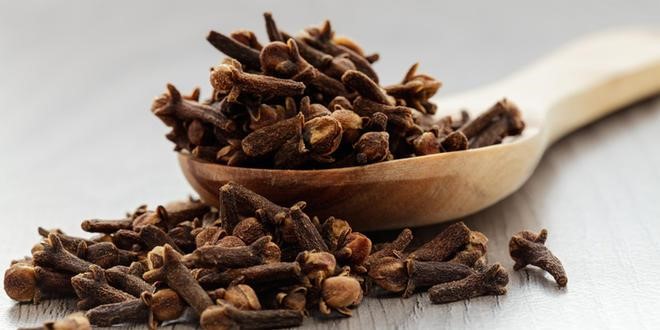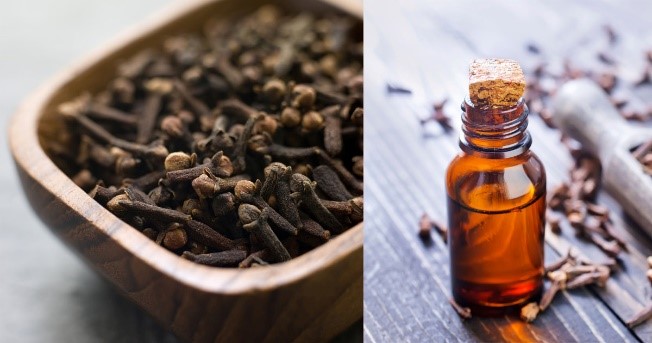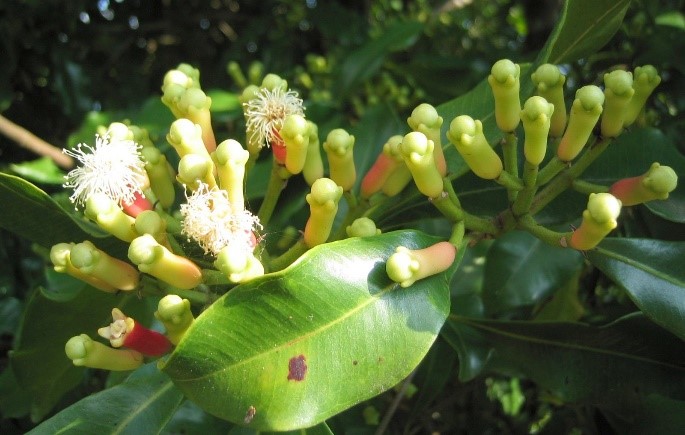Clove: A Magical Spice in Indian Cuisine

Indian cuisine is known for its mouth-watering taste and aromatic spices. Among many spices such as turmeric, cardamoms, nutmeg, cumin, fenugreek, etc, clove is the must-have spice in the Indian kitchen. Cloves have a pungent smell that suggests a combination of camphor, fruit, and pepper. Whether you are a well-established professional cook or just a beginner, having a full stock of a variety of spices is required. Known as ‘laung’ in India, it can be found throughout the year as its harvest season is different in various countries. If you are cooking an Indian dish, the usage of cloves will give you an ethnic taste. Not only in Indian cuisine but cloves are also used in Asian, African, and Middle-east cuisine.

What is this magical spice?
Clove is derived from the tropical, Indonesian clove tree in the myrtle family. Its shape is spike-like and used in ground, whole, and oil forms. The evergreen tree of clove known as Syzygium aromaticum is native to the Indonesian Maluku islands. It was carried to India during Middle Ages and now it is grown everywhere in India. The flower buds are harvested after they ripen and turn crimson red, later they are dried to be preserved. Apart from its hot pungent taste and smell, it has many health benefits. It contains the essential oil Eugenol which is the reason for its distinct aroma. It suppresses microbes and consists of nerve-numbing properties. Apart from eugenol, the other essential oils present in cloves are-
- Beta-caryophyllene
- Gallotannic acid
- Methyl Salicylate
- Tannin
- Vanillin
- Crategolic acid
There are three types of cloves- Penang is reddish-brown and plump in shape. Zanzibar cloves are black-brown in color, small and skinny. Amboyan cloves are plump and a little bigger.
Health benefits of cloves
- Clove proves to be very beneficial for oral health as it contains antimicrobial properties. While having a toothache, applying clove oil or whole clove in the infected area gives immediate relief. Some toothpaste that contains clove oil, helps remove plaque and tooth decay.
- It helps lower blood sugar because it contains the compound nigericin which is considered to be regulating the secretion of insulin.
- During pains in any body parts like headaches, joints, and muscles, the anti-inflammatory and analgesic properties of clove are helpful to eliminate them.
- In case of sleep disorder, the application of clove oil mixed with a little salt on the forehead will relieve any discomfort and provides very sound sleep.
- Clove contains high fibers and low-calorie content so it makes a good digestive system in the body and enhances metabolism.

The side effects of cloves on excessive use
- Excessive use of cloves may increase bleeding. The eugenol chemical slows down the blood clotting process so the clove oil should be consumed as prescribed by the doctor.
- People suffering from diabetes need to be very careful as it may interfere with insulin and lowers the blood sugar level.
- If consumed excessively, clove may cause allergies- respiratory problems, skin rashes, itching, etc.
Eating the whole clove or consuming it in oil form, may cause dizziness and sleepiness.